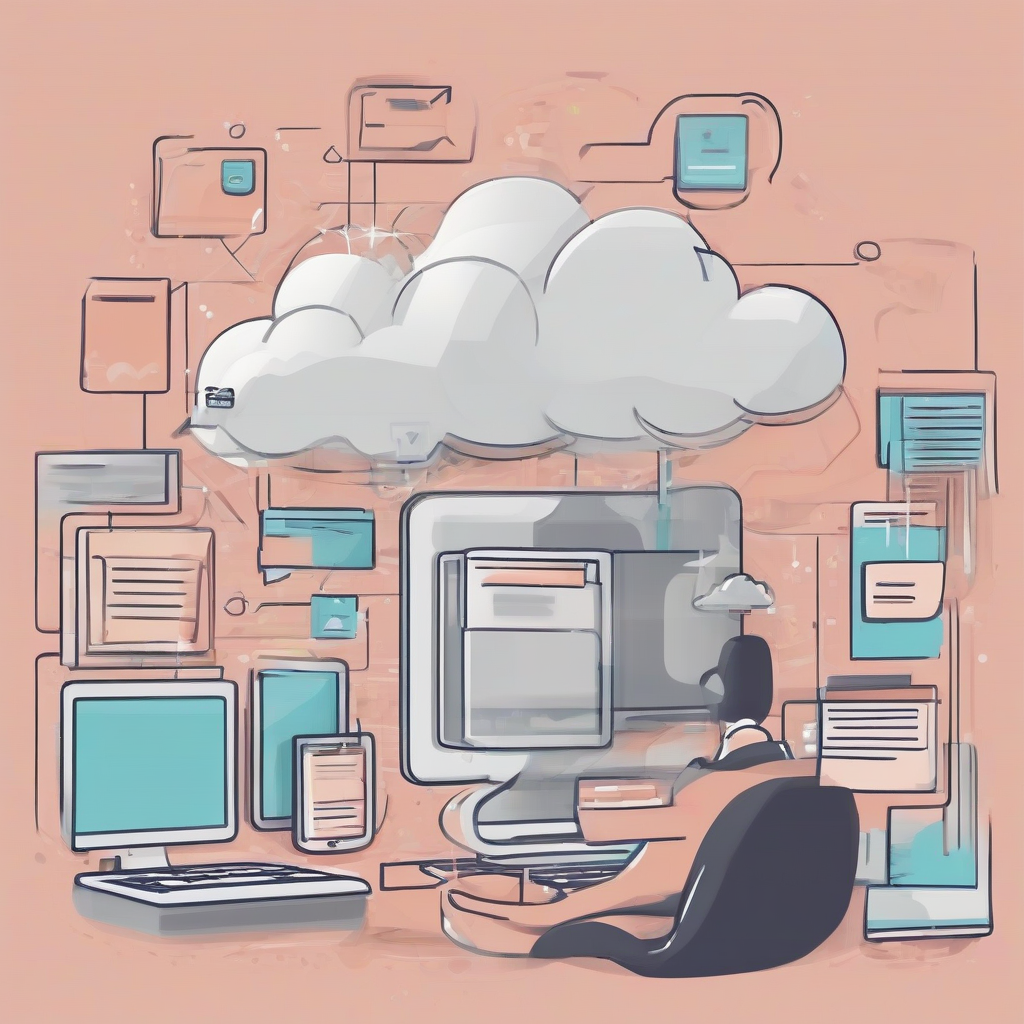Revolutionizing Business Operations: A Deep Dive into Cloud-Based ERP Systems
Enterprise Resource Planning (ERP) systems have long been the backbone of efficient business management. Traditionally deployed on-premise, these complex software solutions integrated various business functions, streamlining operations and improving data visibility. However, the advent of cloud computing has fundamentally reshaped the ERP landscape, introducing cloud-based ERP systems that offer unprecedented flexibility, scalability, and cost-effectiveness.
What is a Cloud-Based ERP System?
A cloud-based ERP system is a software solution that leverages the internet and cloud infrastructure to deliver ERP functionalities. Unlike on-premise systems, which require significant upfront investment in hardware and IT infrastructure, cloud-based ERP solutions are accessed via a web browser, eliminating the need for local installations and server maintenance. This shift to the cloud offers numerous advantages, impacting everything from accessibility and cost to security and scalability.
Key Benefits of Cloud-Based ERP Systems
- Reduced IT Infrastructure Costs: Eliminates the need for expensive hardware, software licenses, and dedicated IT staff for maintenance and support.
- Enhanced Accessibility: Access data and functionalities from anywhere with an internet connection, empowering remote work and improved collaboration.
- Scalability and Flexibility: Easily scale resources up or down based on business needs, accommodating growth or seasonal fluctuations without significant capital investment.
- Improved Collaboration: Real-time data sharing and access fosters seamless communication and collaboration across departments and locations.
- Automatic Updates and Upgrades: The cloud provider handles software updates and upgrades, eliminating the complexities and downtime associated with on-premise system maintenance.
- Enhanced Security: Cloud providers invest heavily in robust security measures, often exceeding the capabilities of individual businesses.
- Faster Deployment: Cloud-based ERP systems can be implemented much faster than on-premise solutions, reducing time-to-value.
- Predictable Costs: Subscription-based pricing models offer greater cost predictability compared to the unpredictable expenses of on-premise systems.
- Increased Efficiency and Productivity: Streamlined processes and improved data visibility contribute to increased efficiency and productivity across the organization.
- Better Data Analytics and Reporting: Cloud-based platforms often offer advanced analytics and reporting capabilities, providing valuable insights into business performance.
Types of Cloud-Based ERP Deployments
There are different models for deploying cloud-based ERP systems, each with its own set of characteristics:
- Public Cloud: The ERP system resides on the provider’s infrastructure and is shared among multiple tenants. This offers the highest cost-effectiveness and scalability.
- Private Cloud: The ERP system resides on a dedicated infrastructure for a single organization. This provides enhanced security and control, but at a higher cost.
- Hybrid Cloud: A combination of public and private cloud deployments, allowing businesses to leverage the benefits of both models. This offers flexibility and tailored security solutions.
Choosing the Right Cloud-Based ERP System
Selecting the appropriate cloud-based ERP system requires careful consideration of several factors:
- Business Size and Needs: The system should align with the specific needs and scale of the business.
- Industry-Specific Functionality: Some ERP systems cater to specific industries, offering tailored functionalities.
- Integration Capabilities: The ability to integrate with existing systems and third-party applications is crucial.
- Vendor Reputation and Support: Selecting a reputable vendor with strong customer support is vital for long-term success.
- Cost and Pricing Model: Evaluate different pricing models to choose the most cost-effective option.
- Security and Compliance: Ensure the system meets necessary security and compliance requirements.
- Scalability and Flexibility: The system should be able to adapt to future growth and changing business needs.
- User-Friendliness and Training: A user-friendly interface and adequate training are crucial for successful adoption.
Implementation and Integration of Cloud-Based ERP Systems
Implementing a cloud-based ERP system involves several key steps:
- Needs Assessment and Planning: Clearly define business requirements and objectives.
- Vendor Selection: Carefully evaluate different vendors and choose the best fit for the business.
- Data Migration: Migrate existing data to the new system, ensuring data integrity and accuracy.
- System Configuration: Configure the system to meet specific business processes and workflows.
- User Training: Provide comprehensive training to users on how to effectively utilize the system.
- Testing and Go-Live: Thoroughly test the system before going live to identify and resolve any issues.
- Post-Implementation Support: Ongoing support and maintenance are crucial for long-term success.
Addressing Potential Challenges
While cloud-based ERP systems offer numerous benefits, businesses should be aware of potential challenges:
- Internet Dependency: Reliance on a stable internet connection is crucial for system access and functionality.
- Data Security Concerns: Although cloud providers invest heavily in security, businesses still need to address data security protocols.
- Integration Complexity: Integrating with legacy systems can be complex and require careful planning.
- Vendor Lock-in: Switching vendors can be challenging and costly.
- User Adoption Challenges: Resistance to change and inadequate training can hinder user adoption.
The Future of Cloud-Based ERP Systems
The future of cloud-based ERP systems looks promising, with ongoing advancements in technology shaping the landscape:
- Increased AI and Machine Learning Integration: AI and ML will enhance automation, predictive analytics, and decision-making capabilities.
- Enhanced Mobile Accessibility: Improved mobile accessibility will further empower remote work and enhance real-time collaboration.
- Improved Integration with Other Cloud Services: Seamless integration with other cloud-based applications will further streamline business operations.
- Greater Focus on Data Security and Compliance: Enhanced security measures and compliance frameworks will address growing data security concerns.
- Rise of Industry-Specific Cloud ERP Solutions: More specialized ERP solutions will cater to the unique needs of different industries.
Conclusion (Omitted as per instructions)
